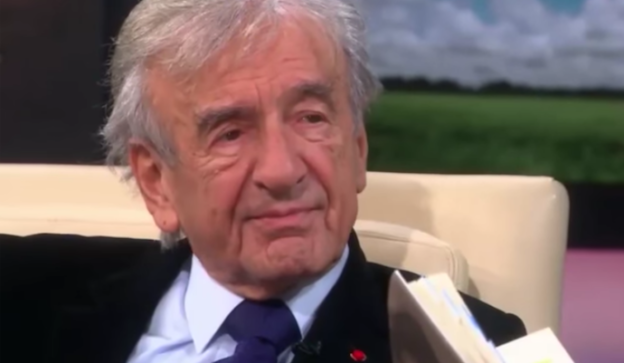The world has lost one of the greatest humanitarians of all time. Nobel Peace Prize winner and Holocaust survivor Elie Wiesel died Saturday at the age of 87.
Wiesel is best known for his internationally acclaimed Holocaust memoir, Night. The book has continued to inspire many generations. In fact, according to reports, the book has been translated in over 30 languages and has been ranked as one of the standard Holocaust reads, along with Anne Frank: The Diary of a Young Girl. During his life, Wiesel also made countless other contributions to humanity.
Advocating to world leaders on behalf of general audiences, Wiesel used his passions for justice to be a voice for the voiceless and to combat atrocities facing millions. Additionally, he served the world through his foundation, The Elie Wiesel Foundation for Humanity, until he passed away. Because of Wiesel’s courage and commitment to all of humanity, the world is a better place.
In tribute to him, here’s a collection of the most meaningful thoughts he shared during his lifetime that continue to touch me and others worldwide. Rest in Peace, Elie.
1.) “When a person doesn’t have gratitude, something is missing in his or her humanity.”
2.) “The opposite of love is not hate, it’s indifference. The opposite of art is not ugliness, it’s indifference. The opposite of faith is not heresy, it’s indifference. And the opposite of life is not death, it’s indifference.”
3.) “There may be times when we are powerless to prevent injustice, but there must never be a time when we fail to protest.”
4.) “Action is the only remedy to indifference: the most insidious danger of all,” he said in his Nobel Peace Prize acceptance speech in 1986.
WATCH VIDEO: Elie Wiesel’s Nobel Peace Prize Acceptance Speech
5.) “Friendship marks a life even more deeply than love. Love risks degenerating into obsession, friendship is never anything but sharing.”
6.) “There are victories of the soul and spirit. Sometimes, even if you lose, you win.”
7.) “No human race is superior; no religious faith is inferior. All collective judgments are wrong. Only racists make them.”
8.) “Once you bring life into the world, you must protect it. We must protect it by changing the world.”
9.) “Most people think that shadows follow, precede or surround beings or objects. The truth is that they also surround words, ideas, desires, deeds, impulses and memories.”
10.) “Wherever men and women are persecuted because of their race, religion, or political views, that place must – at that moment – become the center of the universe.”
11.) “Human suffering anywhere concerns men and women everywhere.”
12.) “[Albert] Camus said, ‘Where there is no hope, one must invent hope.’ It is only pessimistic if you stop with the first half of the sentence and just say, There is no hope. Like Camus, even when it seems hopeless, I invent reasons to hope,” he said in an interview with TIME in 2006.
13.) “Because I remember, I despair. Because I remember, I have the duty to reject despair.”
14.) “Mankind must remember that peace is not God’s gift to his creatures; peace is our gift to each other.”
15.) “Our obligation is to give meaning to life and in doing so to overcome the passive, indifferent life.”
16.) “…I believe it important to emphasize how strongly I feel that books, just like people, have a destiny. Some invite sorrow, others joy, some both.”
17.) “For in the end, it is all about memory, its sources and its magnitude, and, of course, its consequences.”
WATCH: What Oprah Learned from Elie Wiesel









